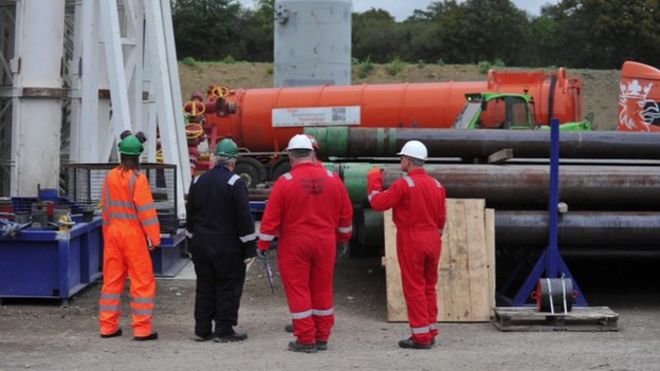Stephen Armstrong and Maruxa Ruiz del Arbol in The Guardian
In a modern-day version of the old casual labour scrum outside the local docks, Nick East scrambles for a free computer screen when the doors of Newcastle’s city centre library open.
The fourth floor computer room of the glass-fronted library is stocked with 40 terminals, plus a handful of iMacs. Even so, it’s almost always packed, with people waiting for a computer to become free for a designated two-hour slot.
“You have to get there very early or all the screens will be gone and you have to hang around,” said the 24-year-old, who has been unemployed for 18 months. “And you can’t afford a city centre coffee [while waiting], so you just walk about the streets.”
East’s need for computer time has nothing to with catching up with friends on social media, online shopping or video downloads. He must apply for 24 jobs a week – with applications taking up to an hour each – on the government’s digital jobcentre looking for work, or lose his benefits. When you don’t own a computer, this is no mean feat – as East has found out.
In an increasingly digital society, large swaths of the population – lacking computers, broadband, email addresses or even phones that function without regular cash top-ups – are discovering harsh consequences to being unconnected. About one fifth of households, have no internet access, according to figures compiled by broadband analysts Point Topic, although government statistics put the figure at 16%. At any one time, there are an estimated 10m pay-as-you-go phones without the credit needed to make calls or pick up voicemail messages.
“The primary reason people don’t have broadband is cost,” said Oliver Johnson, Point Topic’s CEO. “It’s still expensive to buy all the kit you need, let alone the monthly subscription. Ironically, the cheapest rail fares and the cheapest goods are online – meaning poorer people suffer twice over.”
Meanwhile, the government is moving more and more services online. Significantly, universal credit, a benefit which will replace six means-tested allowances and tax credits, will be a digital-only service. Claimants are expected to apply online, manage any subsequent changes online, and contact between the government and the claimant will be made online.
Jobcentres are installing extra computers to cope with this, according to the Department for Work and Pensions. “We expect jobseekers to do all they reasonably can to find work and many employers are now only advertising their jobs online,” a spokesperson said. “Jobcentres across the UK now provide free Wi-Fi and more than 6,000 job search terminals, with staff providing additional support if needed so benefit claimants can look for and apply for jobs.”
But with the number claiming jobseeker’s allowance currently standing at 791,200, it is clear 6,000 terminals cannot service all those who need to be online between 10 and 35 hours each week. “You can’t just walk in to the jobcentre and use the computers, you have to make an appointment,” said Andrew Young of Newcastle Citizens Advice. “We had one client who was homeless and couldn’t get an appointment to use the computer but the jobcentre insisted he apply online. They told him to use the library – but you need an address to apply for a library card.”
East lost his job as a kitchen porter in a country pub after being late for work one time too many. His ageing motorbike had finally collapsed and he didn’t have the money to replace it; the bus was irregular and dropped him off some way from the pub. When he signed on, the jobcentre told him to apply for a minimum 24 jobs per week on Universal Jobmatch, the government’s digital replacement for the old jobcentre noticeboard.
Universal Jobmatch seems like a smart response to the digital age. It can monitor online activity to make sure people are actively hunting for work. If they don’t meet their targets, they are sanctioned, losing benefits for anything from four weeks to three years. But applying for 24 jobs on the Universal Jobmatch system is, at best, a complex and time-consuming business – and for those without broadband, it’s far worse.
East travels to Newcastle’s city centre library from his flat in Newbiggin-by-the-Sea – a good 30 minutes away, with one bus every half hour, and a return fare costing £3.90. The journey three times a week takes almost £12 from his jobseeker’s allowance, leaving him about £6 per day to pay for food, bills and other essentials.
Each job takes a minimum of half an hour to apply for, up to an hour if there are added questionnaires on skills – requiring 12 to 24 hours per week online. If he reaches the end of his two-hour session with an unfinished application, Universal Jobmatch does not give him the option of saving for later completion, meaning he has to start afresh at the next session.
Four months ago, he failed to hit his target of 24 applications and received an official warning. “There just weren’t the jobs,” he said. “I was down for bar work, factory work and general labouring but there weren’t any jobs.”
A few weeks later, he missed his target again when he did not have enough cash for the bus fare to the library. “They sanctioned me. Four weeks with no money – they took my JSA [jobseeker’s allowance], my housing benefit and council tax benefit. I had nothing.”
In Wigan, Lisa Wright, 47, a former factory worker who has been unemployed for three years after the food processing plant she worked for closed, is doing a mandatory six-month community work programme. Alongside 30 hours of community service each week, she has to put in 10 hours on Universal Jobmatch.
“I can only get to a computer in Wigan library on Thursday evenings, Fridays and Saturday mornings,” she said. “There’s sometimes a queue so you can hang around for up to an hour. That’s the only time I can check my emails, which means if I get sent a reply to a job application on Monday I don’t see it for days. It feels like you’re constantly doing things wrong and struggling just to keep up. I met a kid last week doing 200 hours’ community service for robbing a shop. I’m doing 780 hours’ community service and my only crime is being unemployed.”
She feels under constant pressure from using shared computers. “I like to do an application and then go back to it and perfect it and make sure it’s good - but using a shared computer, someone else is waiting. You’re cutting and pasting things from another application. Before you get your application in, you’re already at a disadvantage.”
One of the most deprived areas in the country is Speke, Liverpool – designed as a postwar garden suburb built around a cluster of factories, but the factories closed in the late 70s and early 80s. “Around 85% of our clients don’t even have email addresses,” said Bob Wilson at Speke Citizens Advice.

Citizens Advice clients use its phones to appeal against benefits sanctions if they have no phone credit or cannot afford long calls on an 0800 number, which until June this year are free from landlines but not from mobiles.
Rebecca Thompson, 36, was sanctioned for turning up late to a jobcentre interview and then could not afford to top up her phone for two weeks. She had to borrow a neighbour’s phone to make a doctor’s appointment when she was sick, and faced difficulty applying for an emergency loan to tide her over.
“It takes about two hours to apply for a crisis loan from the welfare fund over the phone. It’s a free number, but it’s not free from a mobile and most people on benefits don’t actually have a landline,” she said.
Data on how many pay-as-you-go mobile phone customers regularly run out of credit is elusive. The UK has 36.1 million pre-pay users, according to Ofcom figures, but no company will release exact figures on how many have zero credit at any one time. A source at one mobile phone company suggested this ran at about 30% – “but it’s hard to be sure exactly why they’ve got a zero balance”, he said. So there could be about 10 million people unable to make calls or access their voicemail at any one time.
And for those who can afford broadband, there’s a final divide: broadband quality. Last June, Ofcom surveyed broadband speeds in 11 UK cities, finding wide variations in speed by region. Residents of Cardiff and Inverness were twice as likely to be on a slower connection as those in London or Birmingham. Superfast broadband was more restricted in city neighbourhoods with lower household incomes. For example, 57.8% of homes and business in the poorest parts of Glasgow had access to superfast broadband, while for most of the cities the figure was 90%.
In December 2014 the government set out its digital inclusion strategy, aiming to reduce the number of people offline. “By 2020, we will have reduced the number of people who lack basic digital skills to around 4.7 million – less than 10% of the adult population,” said the Cabinet Office minister Francis Maude.
Meanwhile, the country is racing towards increasingly digitised election campaigns in which online petitions and Twitter storms can influence government policy. “If 20% of the country can’t take part in this, they can’t be part of the conversation,” warned Mike Harris, CEO of policy and public affairs consultancy 89Up.
For Nick East, the strain of bouncing from home to library to jobcentre is starting to show. He has always been friendly and sociable, with a mop of tousled hair and a cheerful grin, but he’s started to feel miserable every time he climbs the library stairs or walks in to the jobcentre.
“You can see all these gloomy faces – no one wants to be there, I don’t want to be there,” he says quietly. “If I get sanctioned again it’ll be for longer – how do they expect you to pay for stuff? It’s like they’re pushing you to go and commit crime.”
